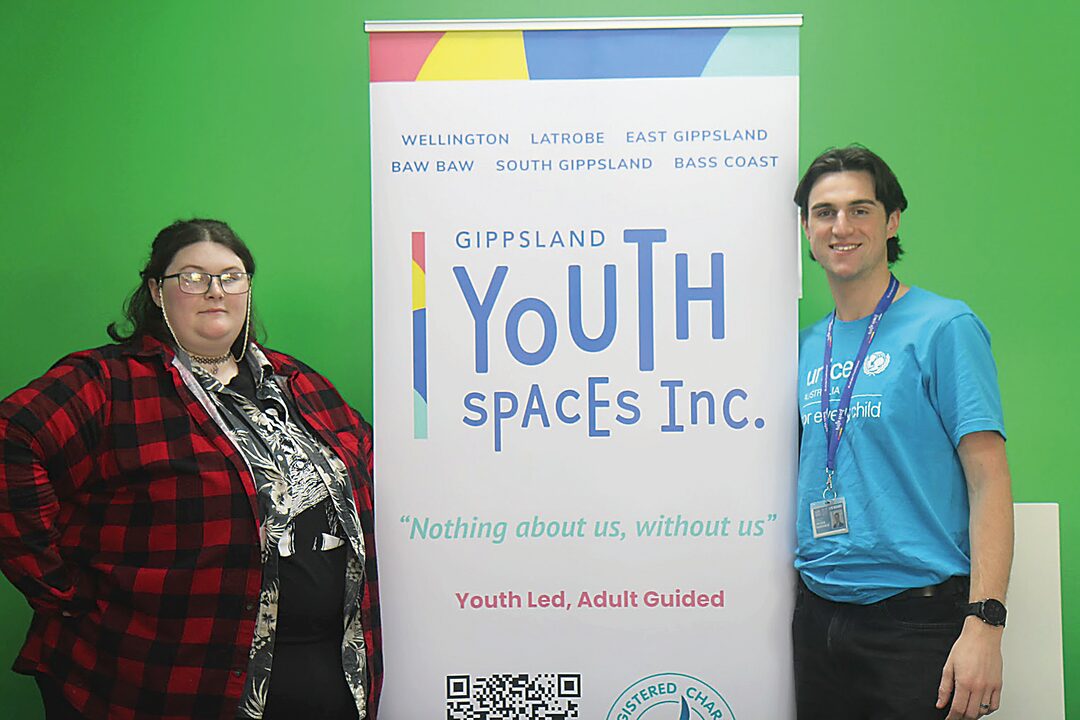By KATRINA BRANDON
THE people most impacted by the future are the youth.
Recently, Latrobe Youth Space hosted a youth climate discussion, where local youngsters could share their thoughts on issues related to climate change.
The discussion branched out into many different topics and saw the group brainstorm ideas.
UNICEF Young Ambassador and Gippsland Youth Spaces Co-Chair, Lincoln Ingravalle led the group, while youth representative Harley (Harlequin) Goodes helped guide the session.
“As the most vulnerable and at-risk group in the world to climate change now and into the future, youth deserve to have their voices heard and their concerns heard,” Mr Ingravalle told the Express.
“By engaging them on this topic, giving them more knowledge about disasters and climate change, what’s going on, just these conversations can then also make them think a bit more about health, their education and what they’re losing when these disasters occur, and thinking about it in a targeted way, not just ‘this is the way it is’.”
UNICEF, the United Nations agency for children, works to protect the rights of every child, particularly the most disadvantaged and those who are hardest to reach. UNICEF was established in the aftermath of World War 2 to help children whose lives and futures were at risk – no matter what role their country had played in the war.
Now, UNICEF operates the world’s largest humanitarian warehouse and oversees an unparalleled logistics network.
Together with the United Nations Framework Convention on Climate Change (UNFCCC), individuals like Mr Ingravalle are travelling the world, engaging with young people, and sparking a conversation about the future.
“All over the world, (we) are a part of the preparation for COP (Conference of the Parties), which is a part of the UNFCCC,” Mr Ingravalle said.
“(It’s) the world coming together to talk about climate change and build the goals for the next 12 months. There are what are called constituencies of COP in the UNFCCC, and there are nine. They are tasked with going around and asking people in the world, young people in the lead up, what they think about climate change, and what they want leaders to do.”
The National Statement on Climate Change or the Youth National Statement has been sent to Canberra and delivered to federal politicians.
While current youth have access to online sources for information, Mr Ingravalle said it was still important to hold open discussions.
“Social media has its ups and downs, but we are exposed to more information, good or bad, and able to commit to causes and things we’re passionate about much easier,” he said.
“Making sure that we’re giving the knowledge and the education so that people can be well informed to ask them and demand their rights in those spaces and within Parliament and other places to control the decision making and have a stronger influence.
“(We are) helping them, giving them the words or letting them find out for themselves, meaning that they can help their communities. They can help themselves.”
Alongside the educational and sociological impacts of the workshops, Ms Goodes said events like these were great in making local and state leaders aware of issues important to youth.
“Strengthening bonds means that you can build those connections between metropolitan and regional. But there needs to be that platform, that way to do it, because otherwise you’re just bumping heads because you have different issues,” she said.
Opportunities such as the workshop are among the many services that Latrobe Youth Space provides to and supports local youth between the ages of 12 and 25. Latrobe Youth Space also offers meals and kits to youth in need.
Gippland Youth Spaces Chief Executive, Sandy Hegarty, told the Express, “In June, we had 682 visits to drop-in sessions alone in that two months. So it was just under eight weeks. We distributed nearly 800 meals during that time.”
“We are sitting around 100 meals a week, and that’s only dropping; that’s not including our program until we get our food as well. We have also delivered backpacks out to CFA and a range of community locations across Gippsland. Two hundred of them have gone to East Gippsland and 200 have gone to Wellington.”
Each backpack includes things that youth might need in an emergency situation where they need to up and leave home, such as socks, a first aid kit and wind-up flashlight.












